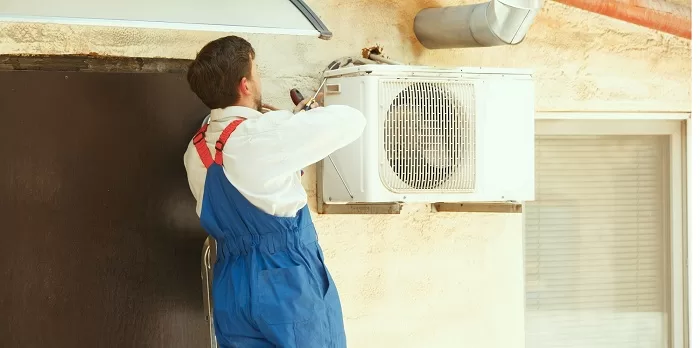Technology
What Is A SEER Rating? The Truth About AC Efficiency

Looking to buy an air conditioner? Are you confused about the different acronyms and technical specs in advertisements and stores? Never fear! This blog post is here to help. AC SEER is one of the most critical factors when purchasing an air conditioner. But what is it, exactly? And what is a good SEER rating to look for?
What is the most common SEER rating?
In the U.S., the most common SEER rating is 13, which means that the system can deliver 13 British Thermal Units (BTUs) of cooling for each watt of energy it consumes. While SEER 13 systems are relatively efficient, there are air conditioners and heat pumps on the market with SEER ratings as high as 26. A SEER rating between 14 and 18 is a good choice for most homeowners.
What SEER rating is considered high efficiency?
When shopping for a new air conditioner, you may have noticed that some models have a higher SEER rating than others. SEER, or Seasonal Energy Efficiency Ratio, measures an air conditioner’s cooling efficiency. In general, units with a SEER rating of 14 or below are considered low efficiency, while units with a rating of 15 or above are considered high efficiency. However, keep in mind that the initial cost of a high-efficiency unit may be higher than a low-efficiency unit, so you will need to factor in both upfront costs and operating costs when deciding which type of unit is right for you.
Does a higher SEER cool better?
A higher SEER rating does not necessarily mean better performance when cooling a home. The Seasonal Energy Efficiency Ratio (SEER) measures how much energy an air conditioning unit uses to cool a space. However, other factors can affect cooling capacities, such as the size of the unit and the climate. Generally, a higher SEER rating means the unit is more efficient, but this does not always translate into better cooling power. Sometimes, a unit with a lower SEER rating may be better suited for a particular space or climate. Ultimately, the best way to determine which air conditioning unit is suitable for your home is to consult a qualified expert like Air America Air Conditioning, Plumbing & Electrical.
How much better is a 16 SEER rating over a 14 SEER?
As any homeowner knows, heating and cooling costs can take a big bite out of the budget. So it is no surprise that people always look for ways to improve their home’s energy efficiency. When it comes to heating and cooling, one of the most important factors is the SEER rating of your system.
A 16 SEER system is about 15% more efficient than a 14 SEER system.By upgrading from a 14 SEER system to a 16 SEER one, you could save around 15% on your heating and cooling costs.In addition, a 16 SEER system will also often have features that can further improve efficiencies, such as variable speed operation and better temperature control. So if you are looking for ways to improve your home’s energy efficiency, upgrading to a 16 SEER system is a great place to start.
What SEER AC qualifies for a tax credit?
The government offers a tax credit for energy-efficient home improvements, and a SEER AC unit qualifies for this credit. The credit is worth a certain percentage of the cost of the unit, up to $500. In order to be eligible, the unit must have a SEER rating of 14 or higher. It is an important consideration when choosing a new AC unit because it can save you money on your taxes. In addition to the tax credit, a SEER AC unit also saves you money on your energy bills. Units with a higher SEER rating are more efficient and use less energy, which means lower monthly bills. When considering a new AC unit, be sure to ask about the SEER rating so that you can take advantage of these savings.
Although this is a new and developing technology, the potential cost savings for homeowners are significant. If you are in the market for a new air conditioner, be sure to ask your contractor about AC SEER ratings and whether or not an AC with a higher rating would be a good fit for your home. You may be able to save yourself much money in the long run by making the switch to an energy-efficient AC unit.






















































